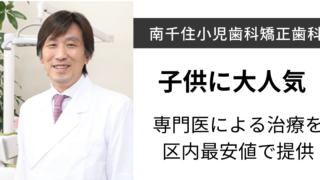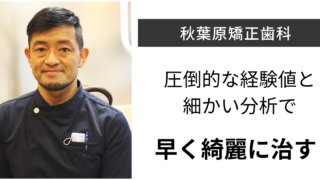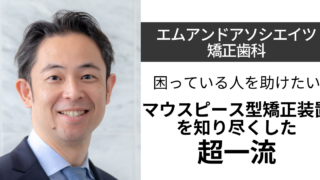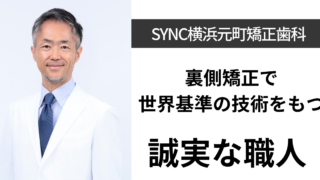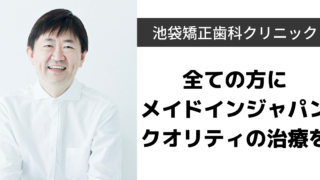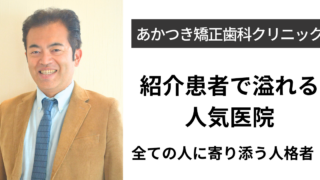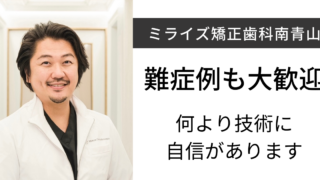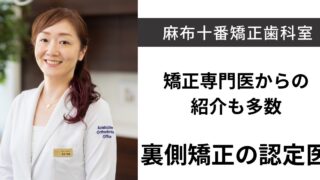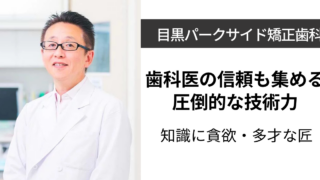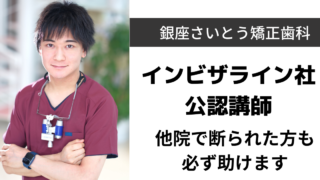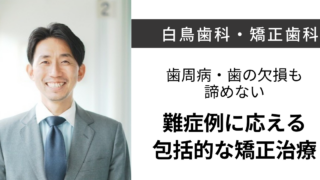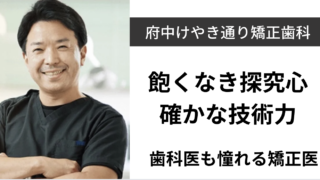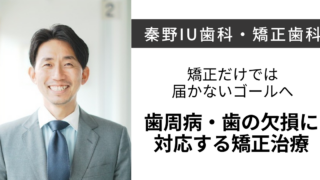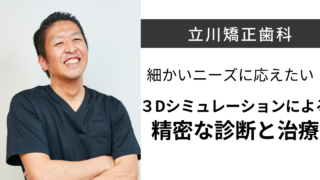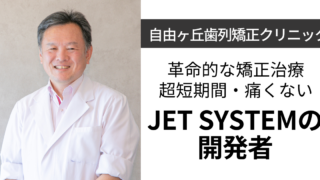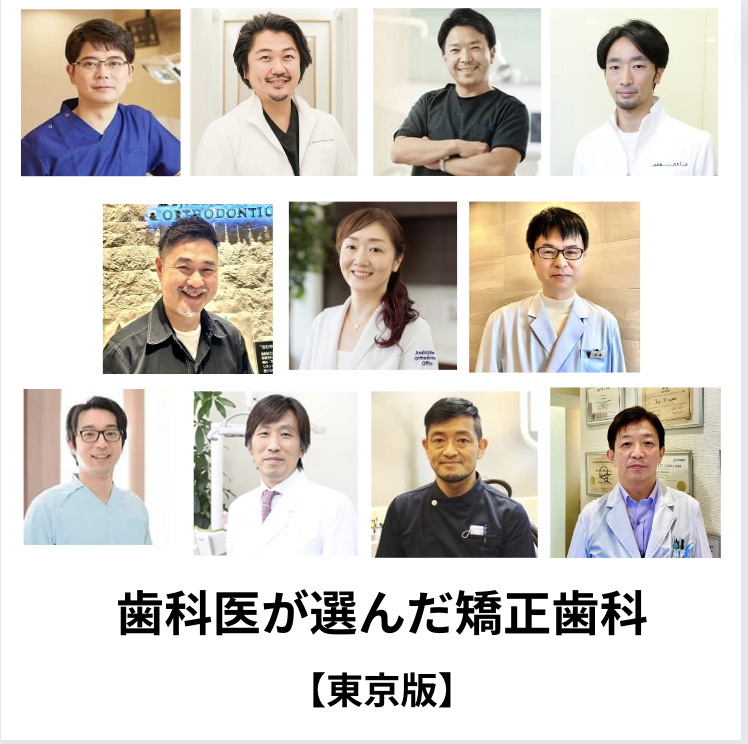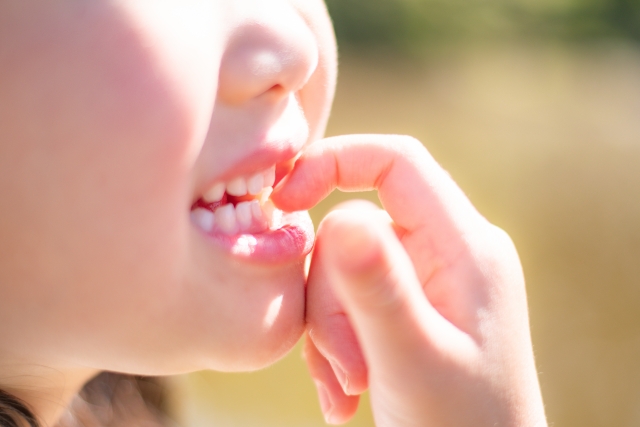
乳歯の歯並びが悪いのはどうしたらいいの?永久歯になるまでにするべきこと

先生、子どもの歯並びが気になっています。
永久歯が生えるまでにするべきことはありますか?

今回は、乳歯の歯並びが悪いのはどうしたらいいのかについて、生え変わりのメカニズムや永久歯になるまでにするべきことをお話しします!
乳歯から永久歯に変わるメカニズム
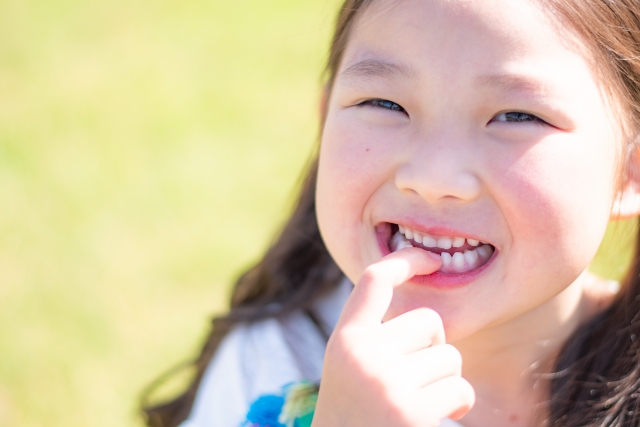
乳歯は、歯茎の中で作られた永久歯に押し上げられるような形で乳歯の根が溶けていき、永久歯に変わるメカニズムになっています。
基本的には乳歯1本の下には1本の永久歯があり、永久歯の成長とともに根の短くなった乳歯が抜けて永久歯が歯茎の中から顔を出します。
さらに、乳歯の生え変わりとともに顎が成長して、乳歯のない歯列の後ろにも2〜3本の永久歯が生えます。
6歳臼歯(第一大臼歯)、12歳臼歯(第二大臼歯)、親知らず(第3大臼歯)が乳歯のないところに新しく生える永久歯です。
親知らずはある人、ない人、生えてくる人、あっても生えてこない人がいるので、必ず生える歯ではありません。
乳歯から永久歯に生え変わる年齢の目安は、以下の通りです。
| 上顎 | 下顎 | |
| 中切歯 | 7〜8歳 | 6~7歳 |
| 側切歯 | 8〜9歳 | 7〜8歳 |
| 犬歯 | 11〜12歳 | 9〜10歳 |
| 第一小臼歯 | 10〜11歳 | 10~12歳 |
| 第二小臼歯 | 10〜12歳 | 11~12歳 |
| 第一大臼歯 (6歳臼歯) | 6~7歳 | 6~7歳 |
| 第二大臼歯 (12歳臼歯) | 12〜13歳 | 11〜13歳 |
| 第三大臼歯 (親知らず) | 10代後半〜 ※生えないこともあります。 | 10代後半〜 ※生えないこともあります。 |
乳歯の歯並びが悪いとどんな影響があるの?
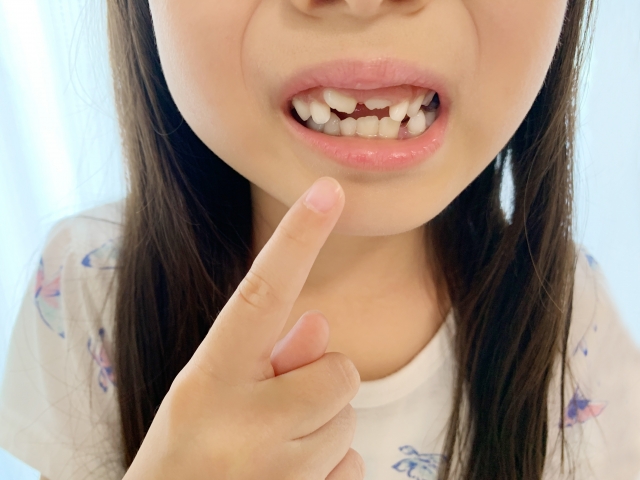
乳歯の歯並びが悪いと以下のような影響が出る可能性があります。
- 虫歯・歯周病のリスクが高くなる
- 永久歯の歯並びや噛み合わせが悪くなることがある
- 摂食機能に影響が出ることがある
- 発音機能に影響を与えることがある
虫歯・歯周病のリスクが高くなる
乳歯の歯並びが悪いと歯磨きがしにくくて汚れが溜まりやすいので、虫歯や歯周病のリスクが高くなります。
乳歯の虫歯は、悪化すると歯茎の中で作られる永久歯の形成不全を引き起こすことがあります。
また、乳歯が虫歯だと虫歯菌が口の中に増えます。そうすると、後から生える永久歯も虫歯のリスクが高くなるので注意が必要です。
永久歯の歯並びや噛み合わせが悪くなることがある
乳歯の歯並びが悪いと、永久歯の歯並びや噛み合わせまで悪くなる可能性があります。
理由は、乳歯が並ばないほど小さい顎には、乳歯よりも大きい永久歯が並ぶスペースを確保できないからです。
通常、3歳頃に乳歯が生え揃うと顎が発達して大きくなり、乳歯よりも大きい永久歯に生え変わるための準備を始めます。
このときは顎だけが大きくなるため、乳歯の歯と歯の間には発育空隙(霊長空隙)と呼ばれる隙間ができます。
永久歯に生え変わるまで一時的にすきっ歯のような状態になりますが、発育空隙ができることで大きな永久歯が生えることができるようになるのです。
しかし、なんらかの理由で顎が上手く大きくならず、乳歯の段階ですでに歯並びが悪いまま永久歯に生え変わる時期を迎える人もいます。
この場合、乳歯よりも大きな永久歯がきれいに並ぶことはほぼありません。
乳歯の歯並びが悪い場合は、永久歯の歯並びや噛み合わせが悪くなる可能性が高いので、早めに小児矯正を受けるなど、対策を立てるのが望ましいです。
咀嚼機能に影響が出ることがある
歯は、食べ物を噛み砕く咀嚼機能や発音機能に影響を与えます。
乳歯の歯並びが悪くて上手く食べ物を噛み砕けない場合は、偏食や栄養の偏りを引き起こす可能性があります。
また、きちんと歯で噛むことは顎の発育を促すために重要です。きちんと噛めないと顎の発育が不十分になり、将来的に歯並びや噛み合わせが悪くなる可能性もあります。
発音機能に影響を与えることがある
発音するときの音は、歯、舌、唇で作ります。
そのため、乳歯の歯並びが悪いと喋るときに空気が漏れて、発音が曖昧に聞こえてしまう可能性があります。
乳歯のうちに歯並びを悪化させない対策や習慣
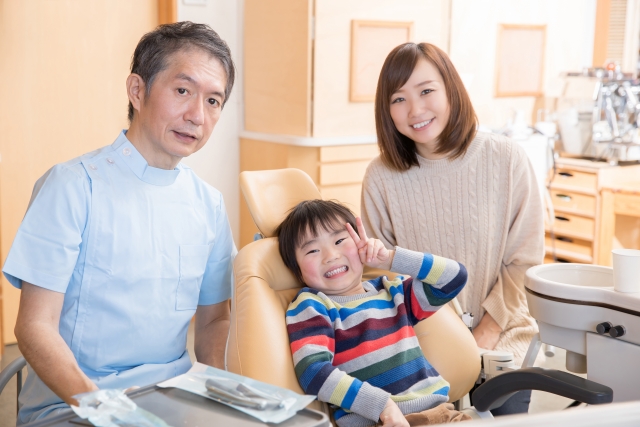
乳歯の歯並びを悪化させないためには、以下のような方法で歯並びが悪化する癖を習慣化させないようにしましょう。
- 3歳くらいまでに指しゃぶりを止めるようにする
- うつ伏せで寝ないようにする
- 頬杖をつかないようにする
- 食べ物を丸呑みしないようにする
- 鼻呼吸を意識する
- 正しい姿勢を心がける
- 小児矯正を受ける
3歳くらいまでに指しゃぶりを止めるようにする
指しゃぶりは、3歳くらいまでに止めるようにしましょう。
赤ちゃんの時期の指しゃぶりは特に問題ありませんが、3歳くらいになっても指しゃぶりを続けている場合は、歯並びや顎の発育に悪い影響が出る可能性があります。
指に強く吸い付くことで歯と顎に変な力がかかってしまうため、噛んだときに上下の歯が噛み合わなくなったり、歯列がV字形になって出っ歯や受け口などを引き起こすことがあります。
特に成長期のうちは、指しゃぶりのような外部からの力で顎や歯の位置が変化しやすい時期です。
指しゃぶりによって顎や歯の位置が悪くなると、大人になった時の歯並びや顔の形にも影響を与える可能性があるので気をつけましょう。
うつ伏せで寝ないようにする
うつ伏せで寝る癖があると、頭の重みで顎にアンバランスな力がかかって歯並びが悪くなる可能性があります。
顎が曲がってしまったり、顎関節に悪い影響が出たりするため、仰向けで寝るようにしましょう。
頬杖をつかないようにする
頬杖をつく癖も、うつ伏せで寝るのと同じで顎にアンバランスな力がかかって歯並びが悪くなる可能性があります。
将来的な顔つきに影響が出ることもあるので、頬杖をつかないように気をつけましょう。
食べ物を丸呑みしないようにする
子どもの顎は、噛む刺激を受けて発達します。
食べ物を丸呑みすると顎の発育に影響が出る可能性があるので、よく噛んで食べるように意識しましょう。
また、片側だけで噛む癖があると左右の顎の発達がアンバランスになるので、両側の歯を満遍なく使って食べるようにしましょう。
鼻呼吸を意識する
歯並びは、唇と舌が押し合う力のバランスの影響を受けます。
口で呼吸している場合は舌で歯を押し出す力が強くなるため、出っ歯や受け口などを引き起こし、歯並びと噛み合わせが悪くなる恐れがあります。
子どもの口が常にポカンと空いている場合は、口で呼吸している可能性が高いです。
唇を閉じて鼻で呼吸するように促しましょう。
正しい姿勢を心がける
猫背になっていると口呼吸になり、歯並びも悪くなりやすいです。
口呼吸は出っ歯や受け口などの原因となるため、背筋を伸ばして正しい姿勢を心がけるようにしましょう。
小児矯正を受ける
子どもの歯並びが悪い場合は、乳歯があるうちに小児矯正治療で治すことができます。
成長期を利用して顎の成長をサポートし、永久歯列を整えるためのベースを作っておけるので、乳歯の歯並びが悪い場合は永久歯に生え変わる前に小児矯正をするのがおすすめです。
子どもの歯並びの治療方法
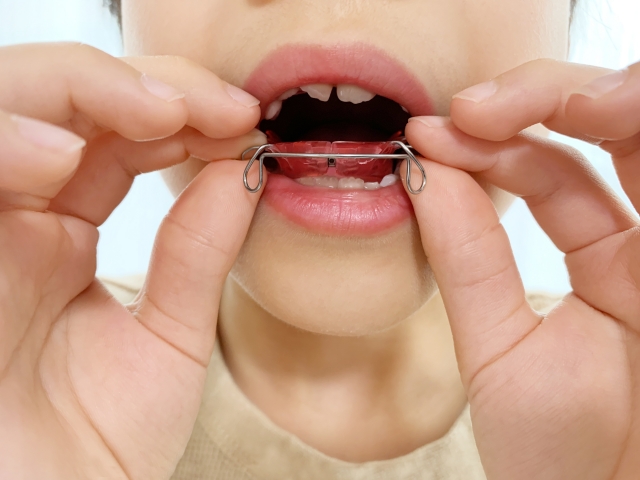
子どもの歯並びは、小児矯正を行って改善を目指します。
小児矯正では、年齢や症状に応じて以下のような矯正装置を使い分けて治療を行います。
- プレオルソ
- ムーシールド
- T4K
- リンガルアーチ
- リップバンパー
- 上顎前方牽引装置
- チンキャップ
- インビザラインファースト など
小児矯正は成長期や生え変わりを考慮して進める必要があるため、自力で改善することはできません。
小児矯正を扱っている歯医者で相談して、適切な治療を受けるようにしましょう。
まとめ
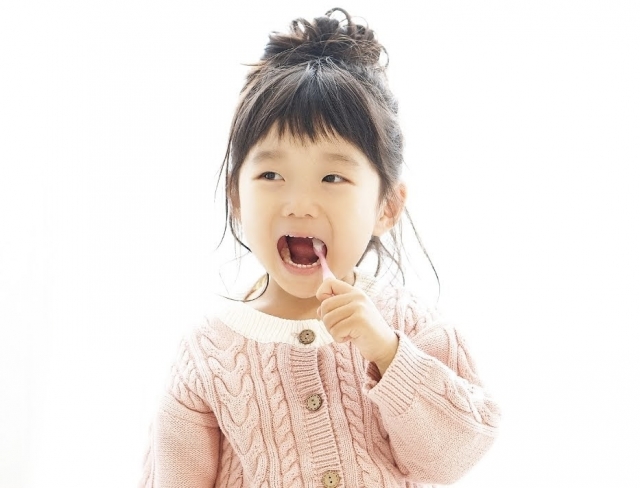
子どもの歯並びが悪い場合は、虫歯や歯周病のリスクが高く、永久歯の歯並びや噛み合わせまで悪くなる可能性があります。
乳歯があるうちに歯並びを悪化させる癖をやめて、必要に応じて小児矯正を受けるといいでしょう。
365dentistでは、
- 歯科医師運営のオープンチャットでのご相談
- あなたにあった歯医者探しのお手伝い
- お口に関するお役立ちコラム
で、あなたのお口の健康と美をサポートいたします!
お口のお悩みがある方は、まずは歯科医師運営のオープンチャットでお気軽にご相談ください!
関連記事:指しゃぶりは歯並びに関係する?
関連記事:歯並びが悪いのは遺伝が原因?
365dentist総監修 歯科医師/ゆきこ
長崎大学歯学部卒業、〜2018 九州医療センター、2018〜現在 都内歯科クリニック勤務
監修 歯科医師/Naomi
臨床研修終後、都内審美歯科勤務。現在は歯科医師/歯科ライター

